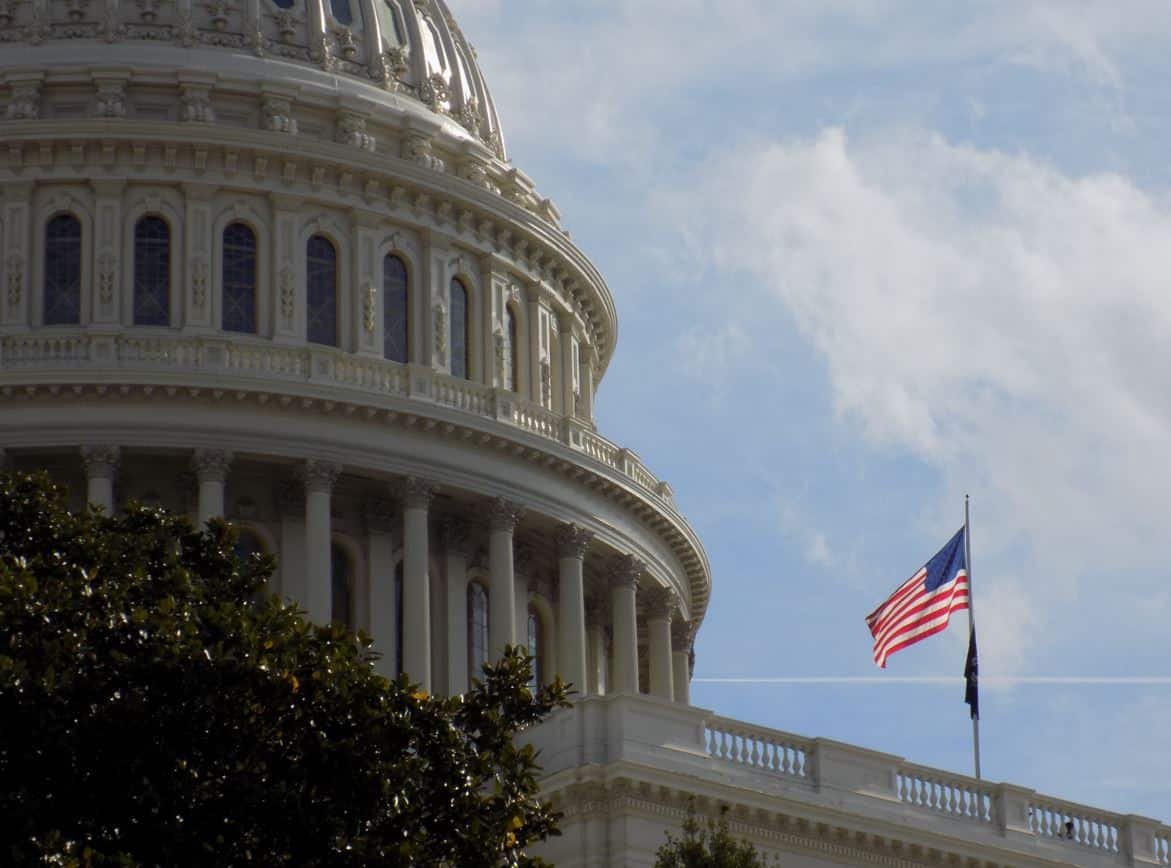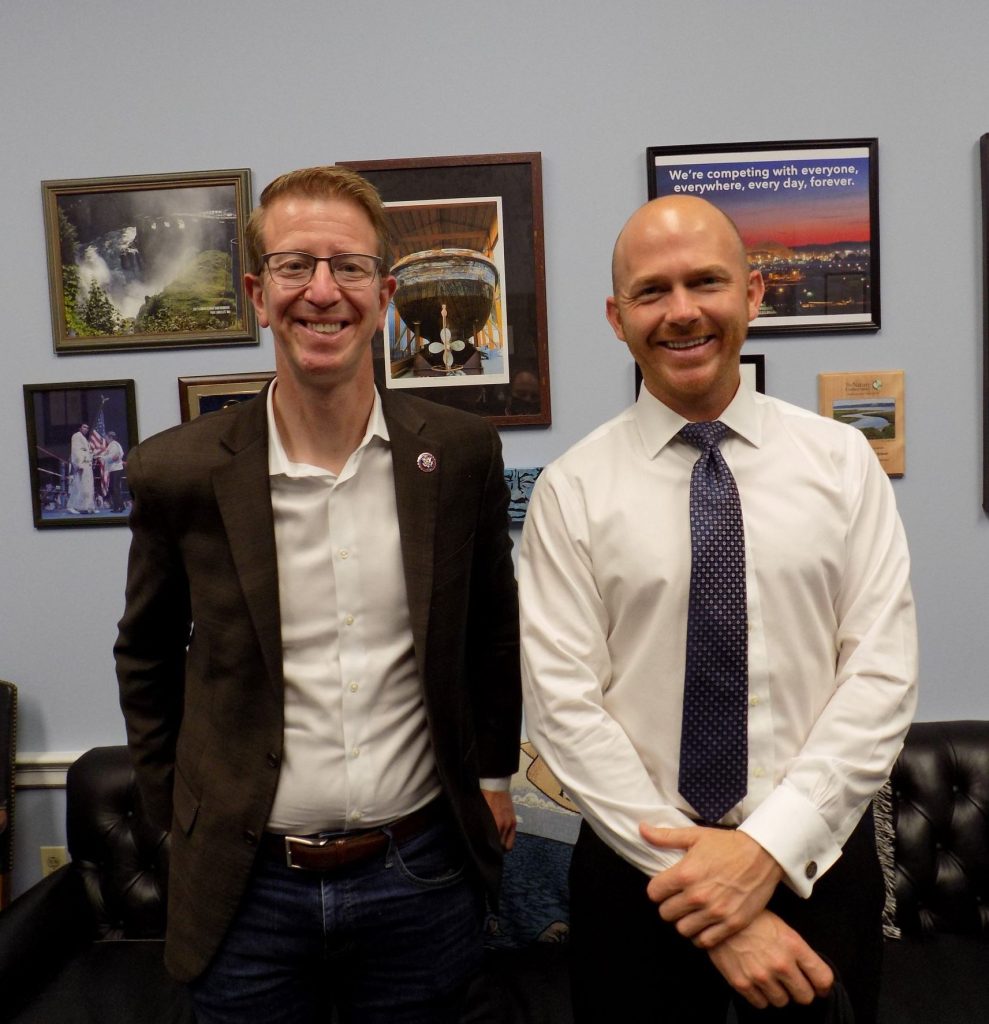Select Committee Releases Final Report on How to Fix Congress, Revive Bipartisanship

WASHINGTON — There likely haven’t been many select committees in the history of Congress who on their last day made the mind wander back to “Hub Fans Bid Kid Adieu,” the epic 1960 account of Ted Williams’ final game at Fenway Park.
Written by a very young John Updike for The New Yorker magazine, the piece still reverberates with all the attendant excitement of that day, which was capped by Williams slugging a home run with his final swing.
In some ways, Reps. Derek Kilmer, D-Wash., and William Timmons, R-S.C., have achieved a similar feat with the release of the last ever report and list of recommendations from the Select Committee on the Modernization of Congress.
Established at the start of the 116th Congress, with Kilmer as chair and then-Rep. Tom Graves, R-Ga., as co-chair, the panel was given wide latitude to explore ways to help the institution work better for members, staff and the American people.
Some of the work was mundane, focusing on things like office operations and staff retention. Most of it, however, struck right at the divided heart of Capitol Hill, delving into how members can once again learn how to trust each other a little bit more and move meaningful legislation in a bipartisan fashion.
Spread over 280 pages, the panel’s final report details its findings over the course of the 117th Congress and includes 105 bipartisan recommendations, in addition to the 97 recommendations they offered up at the end of the 116th Congress.
“The Modernization Committee was established with the sole mission of making Congress work better for the American people,” said Kilmer, who became the well-known face of doing the right thing during the committee’s four years as a living and breathing entity.
“The committee has spent the last four years examining everything from staff capacity to outdated technology to increasing polarization in order to figure out how we can build a better institution that is more responsive to the needs of the American people,” he explained.
“The Modernization Committee’s final report details the sum of our efforts. … The committee’s work will make a difference well beyond the 117th Congress and ensure that Congress is better equipped to make ongoing improvements in service to all our constituents,” he said.
Timmons was named to the committee at its founding and became its co-chair after Graves opted not to run for reelection ahead of the 117th Congress.

“I was honored to be appointed to this committee four years ago because it has provided me with the opportunity to make the institution work better for the American people,” Timmons said on Tuesday.
“By putting policy above partisan politics, the Modernization Committee found common ground at every possible turn and advanced 105 recommendations during the 117th Congress,” he continued. “As the committee comes to an end, I hope my colleagues and I can continue working together to ensure these reforms are implemented and find additional ways to make Congress more effective, efficient and transparent for the American people.”
Unlike many other reform efforts, the Modernization Committee chose to not only focus on making recommendations, but also assisted with implementation efforts, assuring their reports don’t just gather dust now that the committee has packed up and turned the conference room lights off one last time.
As a result of this approach to their duties, the committee members made real progress on advancing 132 of their 202 recommendations in the 116th and 117th Congress.
This includes 45 recommendations that have been fully implemented and 87 that have been partially implemented.
Additionally, Kilmer and Timmons announced today that they intend to make all of the committee’s records publicly available immediately.
As the panel’s Communications Director Susan Curran explained to The Well News on Monday, the committee is releasing its records in full in the hope that its body of work will support future efforts to strengthen the institution and to ensure that ongoing efforts to improve the functioning and day-to-day work of the House of Representatives is done as transparently as possible.
The step itself, it turns out, is extraordinary. Absent the bipartisan agreement of its members, the records archived by the Modernization Committee would ordinarily not be publicly available for 30 years per current House rules.
But that approach was what the panel was all about from the beginning.
“Since its inception, this committee has prioritized collaboration and has consistently worked in a bipartisan fashion,” the report says early on. “This was in part because the rules that established our committee required recommendations to have two-thirds support in order to pass. Because the committee was also structured to have an equal number of Democrats and Republicans serve, all recommendations made by the committee had to be bipartisan.
“However, our bipartisan approach went well beyond what the rules required,” the report continued. “It defined every aspect of our work, from the way we staffed and funded the committee to how we operated day-in and day-out. We held bipartisan planning retreats at the start of each session, where we got to know each other on a personal basis, discussed priorities and set the agenda that shaped our committee’s work. We held our hearings in a roundtable setting, with a more flexible questioning format so we could talk to each other and to witnesses eye-to-eye and engage in civil discussion. And we regularly met informally to discuss the issues before the committee and to negotiate recommendation language.
“This unique approach encouraged and contributed to the development of productive working relationships that will help us partner on other policy areas in the future. Our approach also provided an example of how Congress — and committees, in particular — can work together constructively,” the committee said.
On Tuesday, House Speaker Nancy Pelosi, D-Calif., applauded the members’ “tireless work,” saying it has “charted this institution’s path forward: identifying opportunities for reform while serving as a model of collaborative, bipartisan lawmaking.”
Under Kilmer’s leadership, Pelosi said, the committee’s “diligent fact-finding” has “drawn insights from every corner of the House community” and delivered “positive, concrete and lasting change.”
“The House owes the entire select committee a debt of gratitude for their unwavering commitment to strengthening the institution we cherish so deeply,” Pelosi said.
And all at once one could be forgiven for harkening back to grainy footage captured in a major league ballpark 62 autumns ago and a scene so eloquently wrestled to the page by Updike.
Williams was down two strikes before he launched the ball “on a diagonal line into the vast volume of air over center field.”
“It was in the books while it was still in the sky,” Updike wrote.
All during the arch of the ball’s fight, Williams ran the bases as he always did when he hit home runs, as if the cheers from the stands “were a storm of rain to get out of.”
Williams’ last “word,” Updike wrote, stroking the ball into a distant bullpen, was “exquisitely chosen.”
“Such a perfect fusion of expectation, intention and execution,” Updike observed.
Dan can be reached at [email protected] and @DanMcCue






















